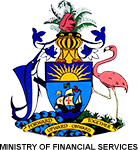Let’s Talk Most Favoured Nation
28 Aug 2019
The Most Favoured Nation principle was designed to ensure equal treatment
Discrimination makes people angry. Discriminating against a trading partner has the same effect at a much larger scale. The Most Favoured Nation principle was designed to prevent countries from giving different treatment to one partner over the other. Keith Rockwell, WTO Director of Information and External Relations, and Joan Apecu, counsellor at the Council and Trade Negotiations Committee, talk about how the principle works, the most important exceptions and potential impacts of leaving it aside.
More on ‘most-favoured’ nation principle
This sounds like a contradiction. It suggests special treatment, but in the WTO it actually means non-discrimination — treating virtually everyone equally.
This is what happens. Each member treats all the other members equally as “most-favoured” trading partners. If a country improves the benefits that it gives to one trading partner, it has to give the same “best” treatment to all the other WTO members so that they all remain “most-favoured”.
Most-favoured nation (MFN) status did not always mean equal treatment. The first bilateral MFN treaties set up exclusive clubs among a country’s “most-favoured” trading partners. Under GATT and now the WTO, the MFN club is no longer exclusive. The MFN principle ensures that each country treats its fellow-members equally.
Click here to read more about the WTO.

